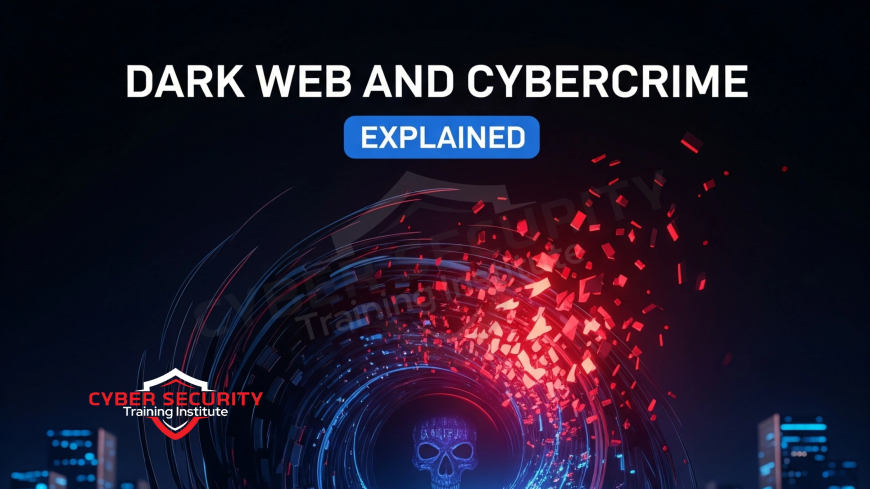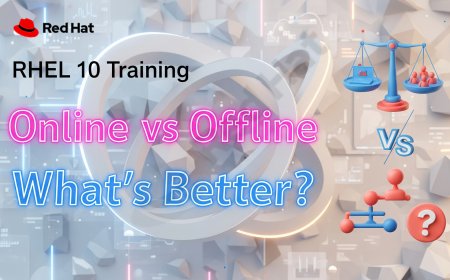How Do Hackers Use the Dark Web for Cybercrime?
Imagine a hidden corner of the internet where anonymity reigns supreme, and shady deals happen away from prying eyes. This isn't just a scene from a thriller movie—it's the reality of the dark web, a place where cybercriminals thrive. In today's digital age, hackers are more sophisticated than ever, using this shadowy network to plan, execute, and profit from their crimes. But what exactly is the dark web, and how do hackers exploit it? In this blog post, we'll dive deep into these questions, breaking down complex ideas into simple terms so anyone can understand. Whether you're a beginner curious about online security or someone looking to protect yourself, you'll find valuable insights here. Let's uncover the mysteries of the dark web and learn how to stay safe in an increasingly connected world.

Table of Contents
- What is the Dark Web?
- How Do Hackers Access the Dark Web?
- Common Cybercrimes on the Dark Web
- Tools and Services Used by Hackers
- How Stolen Data is Sold on the Dark Web
- Challenges for Law Enforcement
- Real-World Examples of Dark Web Cybercrime
- How to Protect Yourself from Dark Web Threats
- Conclusion
- FAQs
What is the Dark Web?
The internet we use every day—like browsing Google or checking social media—is just the tip of the iceberg. Below the surface lies the deep web, which includes things like private databases and email inboxes that aren't searchable by regular engines. Then, there's the dark web, a small but notorious part of the deep web that's intentionally hidden and requires special tools to access.
Think of the dark web as a secret club on the internet. It's not indexed by search engines like Google, so you can't just type in a URL and go there. Instead, it uses networks that anonymize users, meaning your identity and location are hidden. This anonymity attracts all sorts of people, from journalists protecting sources to, unfortunately, cybercriminals looking to do harm without getting caught.
The dark web makes up about 96% of the entire internet, but most of it isn't the scary stuff you hear about. It's built on technologies that encrypt data and route it through multiple points, making it hard to trace. While it has legitimate uses, like allowing free speech in oppressive regimes, it's infamous for illegal activities. Hackers love it because they can operate in the shadows, sharing secrets, buying tools, and selling stolen goods without fear of immediate detection.
To put it simply, the dark web is like the back alleys of the online world—full of opportunities for those who know how to navigate it, but dangerous for the unprepared. Understanding it is the first step in recognizing how hackers use it for cybercrime.
How Do Hackers Access the Dark Web?
Accessing the dark web isn't as simple as opening your favorite browser. Hackers use specialized software to enter this hidden realm, ensuring their activities remain anonymous. The most popular tool is Tor, which stands for The Onion Router. Tor works by bouncing your internet connection through a series of volunteer-operated servers around the world, encrypting your data at each step. This makes it extremely difficult for anyone to track your online movements.
Other tools include I2P (Invisible Internet Project) and browsers like Brave with built-in Tor functionality. Once inside, websites on the dark web have addresses ending in .onion, which are long strings of random characters. You can't access them without the right software, and they're designed to be hard to find or remember.
Hackers often use virtual private networks (VPNs) in combination with Tor for extra layers of protection. They might also employ cryptocurrency wallets to handle payments anonymously. The key here is layers of anonymity—hackers don't want their real IP addresses or identities leaking out.
For beginners, it's important to note that while anyone can download Tor and explore, venturing into the dark web comes with risks. Malware is rampant, and scams are common. Hackers, however, are pros at this; they know how to avoid pitfalls and use the network to their advantage for planning attacks or collaborating with others.
In essence, accessing the dark web is about building a fortress of privacy. Hackers invest time in setting up secure connections so they can focus on their illicit activities without interruption.
Common Cybercrimes on the Dark Web
The dark web is a breeding ground for various cybercrimes, where hackers can buy, sell, and collaborate on illegal schemes. Because of its anonymity, it's perfect for activities that would be risky on the regular internet. Let's break down some of the most common ones.
First, there's the trade in stolen data. Hackers sell personal information like names, addresses, and credit card details, which buyers use for identity theft or fraud. Then, there's malware distribution—hackers offer viruses and ransomware kits to anyone willing to pay. Drug trafficking and illegal goods sales are also huge, but we're focusing on cyber-related crimes.
Another big one is hacking services for hire, where experts offer to break into systems or launch denial-of-service attacks. Forums buzz with discussions on exploiting vulnerabilities, sharing tips that help novices become threats.
To give you a clearer picture, here's a table outlining some common cybercrimes and how they're facilitated on the dark web:
| Cybercrime Type | Description | How Dark Web is Used |
|---|---|---|
| Data Theft and Sales | Stealing and selling personal or corporate data | Marketplaces for listing breached info |
| Ransomware Attacks | Encrypting victim's data and demanding ransom | RaaS kits sold with support |
| Phishing and Fraud | Tricking people into giving up info | Kits and tutorials shared on forums |
| DDoS Services | Overwhelming websites with traffic | Hire services for attacks |
| Credential Stuffing | Using stolen logins on multiple sites | Databases of credentials traded |
These crimes aren't isolated; they often interconnect. For example, stolen data from a phishing attack might be sold to fuel ransomware. The dark web lowers the barrier to entry, allowing even less skilled individuals to participate in cybercrime.
Tools and Services Used by Hackers
Hackers on the dark web have access to a wide array of tools and services that make cybercrime easier and more efficient. These range from software to hired expertise, all available for purchase or rent.
One popular category is malware kits. Ransomware-as-a-Service (RaaS) allows hackers to lease powerful encryption tools complete with payment systems and tech support. Phishing kits are another staple—pre-made templates that mimic legitimate websites to steal login info.
Exploit developers sell vulnerabilities in software, known as zero-days if they're unknown to the public, or N-days for recently patched ones. Tools like these can fetch high prices, but they empower buyers to launch sophisticated attacks.
Services include initial access brokers who sell entry points into corporate networks, often for thousands of dollars depending on the target. DDoS-for-hire lets anyone overwhelm a website with traffic for as little as $350 a week.
Cryptocurrency tumblers mix funds to hide their origins, essential for laundering profits. Forums and chatrooms facilitate collaboration, where hackers share code, advice, and even recruit team members.
In short, the dark web acts like an underground supermarket for cyber tools, democratizing crime but also increasing the overall threat level to everyone online.
How Stolen Data is Sold on the Dark Web
Once hackers steal data—through breaches, phishing, or malware—they need a way to turn it into cash. The dark web provides the perfect marketplace for this, where stolen information is commoditized and sold like any other product.
Data types include "fullz," which are complete personal profiles with names, addresses, and SSNs, selling for $10 to $100. Credit card details go for $5 to $120, while corporate databases can fetch up to $100,000.
Selling happens on dedicated marketplaces that resemble eBay, with listings, reviews, and escrow services to build trust. Buyers search for specific data, pay in crypto like Bitcoin or Monero, and receive the goods digitally.
Hackers use mixing services to launder payments, obscuring the money trail. The process starts with a breach, then packaging the data, listing it, and completing the sale—all anonymously.
This trade fuels further crimes, like identity theft or fraud. For victims, it means ongoing risks long after the initial hack. Businesses suffer financial and reputational damage, highlighting why monitoring the dark web is crucial.
Challenges for Law Enforcement
Policing the dark web is like trying to catch smoke—its design makes it incredibly tough for authorities. Anonymity is the biggest hurdle; Tor and encryption hide users' identities and locations, complicating investigations.
Crimes often cross international borders, creating jurisdictional nightmares. A hacker in one country might target victims in another, with servers in a third. Coordinating global efforts is slow and bureaucratic.
Platforms evolve quickly; when one marketplace is shut down, others pop up with better security. Cybercriminals use AI and new tech to stay ahead, while law enforcement struggles with resource limitations and technical expertise.
Despite successes like taking down RaidForums, the dark web's decentralized nature means it's resilient. This ongoing cat-and-mouse game underscores the need for international cooperation and advanced tools.
Real-World Examples of Dark Web Cybercrime
To illustrate the impact, let's look at some real cases. The RaidForums marketplace was a hub for selling billions of stolen records, including Facebook data, before its 2022 shutdown. This led to widespread identity theft and fraud.
Another example is the sale of access to tech companies, averaging $13,000 per entry in 2020. Hackers used these to deploy ransomware, costing businesses millions.
The SSNDOB market sold Social Security numbers and other personal info, enabling tax fraud and more. These cases show how dark web activities ripple into the real world, affecting individuals and economies.
State-sponsored espionage also occurs, with hackers selling government secrets. These examples highlight the dark web's role in amplifying cyber threats.
How to Protect Yourself from Dark Web Threats
While the dark web seems daunting, there are practical steps to safeguard yourself. Start with strong, unique passwords for each account, and enable two-factor authentication (2FA) wherever possible. This adds an extra layer if credentials are stolen.
Regularly monitor your credit reports and use identity theft protection services. Tools like dark web scanners can alert you if your data appears online.
Be cautious with phishing emails—don't click suspicious links. Keep software updated to patch vulnerabilities. For businesses, implement employee training, use antivirus, and monitor for leaks.
- Use a VPN for public Wi-Fi.
- Avoid sharing unnecessary personal info.
- Freeze your credit if needed.
- Employ threat intelligence services.
By staying vigilant, you can reduce risks from dark web activities.
Conclusion
In wrapping up, the dark web serves as a powerful tool for hackers engaging in cybercrime, from selling stolen data to distributing malware. We've explored its structure, access methods, common crimes, tools, sales practices, law enforcement challenges, examples, and protection tips. While anonymity enables these activities, awareness and proactive measures can help mitigate threats. Remember, the best defense is education and caution in our digital lives. Stay safe out there!
FAQs
What exactly is the dark web?
The dark web is a hidden part of the internet that requires special software like Tor to access. It's not indexed by search engines and offers high anonymity, used for both legal and illegal purposes.
How is the dark web different from the deep web?
The deep web includes all unindexed content, like private emails, while the dark web is a subset that's intentionally anonymous and often associated with illicit activities.
Why do hackers prefer the dark web?
It provides anonymity, making it hard to trace activities, perfect for selling stolen data or collaborating on crimes without detection.
What tools do hackers use to access the dark web?
Mainly Tor browser, I2P, and VPNs to ensure privacy and security while navigating hidden sites.
Can anyone access the dark web?
Yes, but it's risky due to malware and scams. It's not recommended without proper precautions.
What types of data are sold on the dark web?
Personal info like SSNs, credit cards, medical records, and corporate secrets, often bundled as "fullz."
How do hackers sell stolen data?
Through marketplaces with listings, reviews, and crypto payments, similar to online shopping but anonymous.
What is Ransomware-as-a-Service?
A model where hackers rent ransomware tools, including support, to launch attacks easily.
Are there legal uses for the dark web?
Yes, like whistleblowing, journalism in censored areas, and secure communication.
How can I check if my data is on the dark web?
Use monitoring services or scanners that search for your info in known leaks.
What is Tor and how does it work?
Tor routes your connection through multiple servers, encrypting data to hide your identity.
Why is cryptocurrency used on the dark web?
It's decentralized and anonymous, ideal for illicit transactions without banks.
What are initial access brokers?
Hackers who sell entry points into networks, allowing others to exploit them.
How does law enforcement fight dark web crime?
Through infiltration, international cooperation, and shutting down marketplaces, though it's challenging.
What is a dark web marketplace?
An anonymous site for buying/selling illegal goods, with features like escrow for trust.
Can dark web activities affect everyday people?
Yes, through identity theft, fraud, or ransomware from sold data.
What should I do if my data is on the dark web?
Change passwords, enable 2FA, monitor accounts, and report to authorities.
Are there alternatives to Tor for dark web access?
Yes, like I2P or Freenet, each with different anonymity features.
How do hackers launder money from dark web sales?
Using tumblers or mixers to obscure crypto transaction trails.
Is the dark web getting bigger?
Yes, as technology advances, it evolves, attracting more users and criminals.
What's Your Reaction?
 Like
0
Like
0
 Dislike
0
Dislike
0
 Love
1
Love
1
 Funny
0
Funny
0
 Angry
0
Angry
0
 Sad
0
Sad
0
 Wow
0
Wow
0







![How to Install RHEL 10 on VMware/VirtualBox [Tutorial]](https://www.cybersecurityinstitute.in/blog/uploads/images/202509/image_430x256_68b56dc967a4a.jpg)







